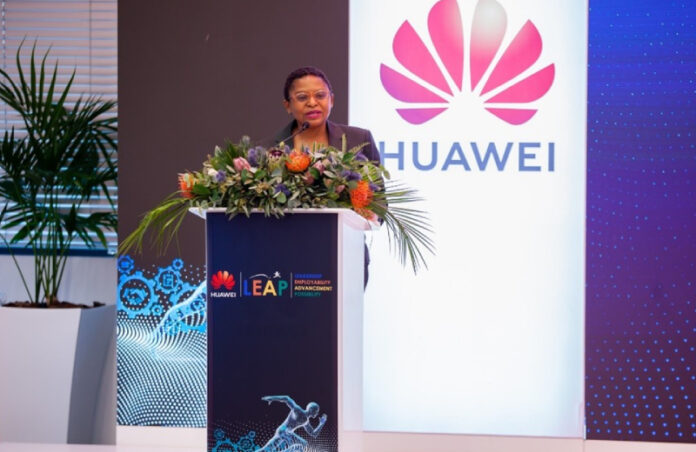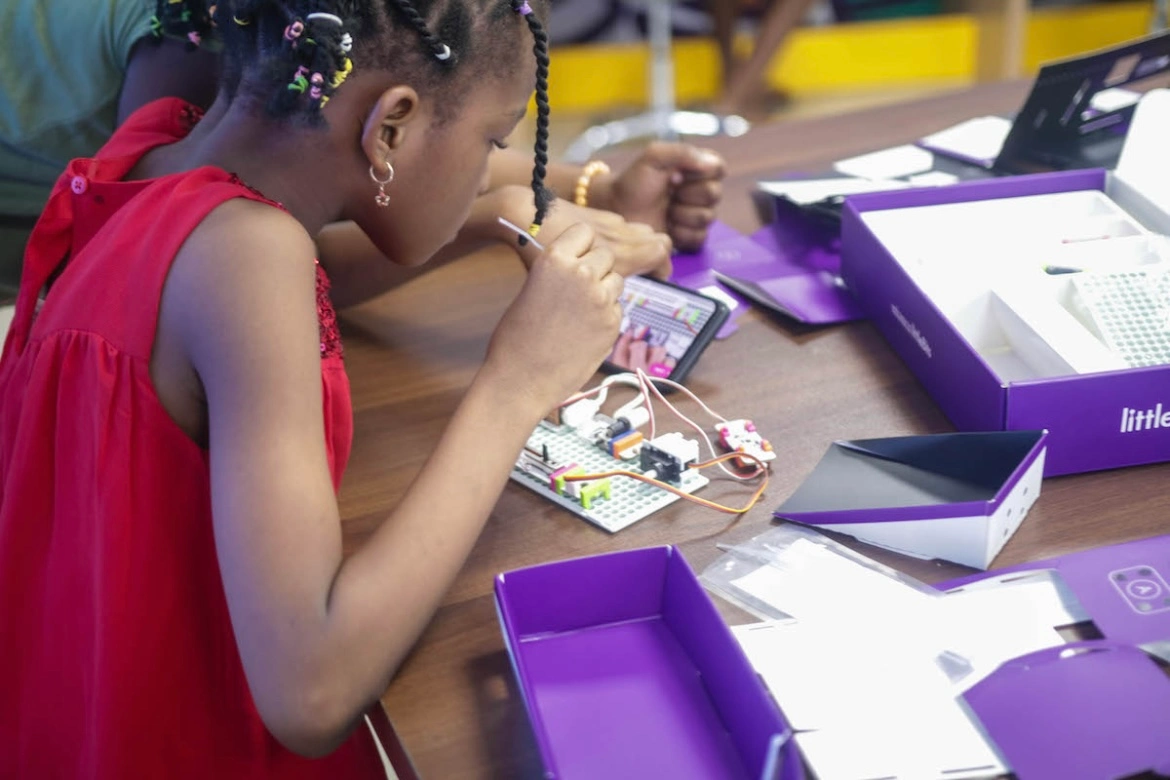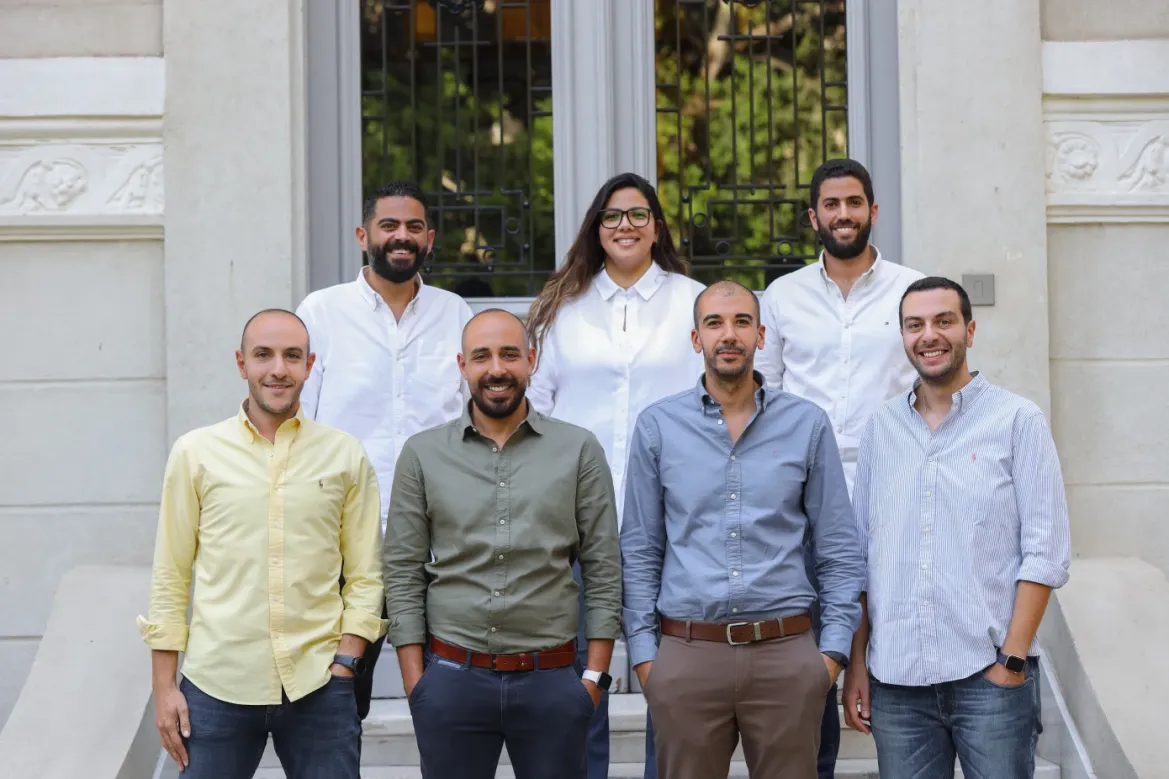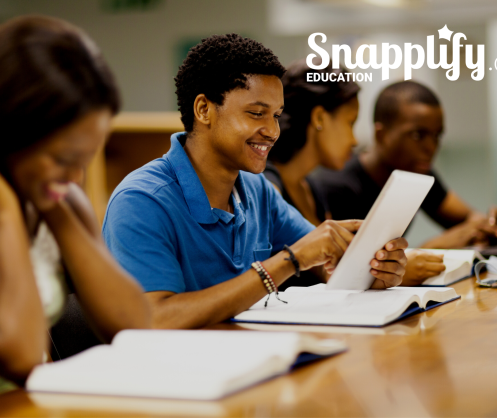Huawei to Empower 100,000 People Across Sub-Saharan Africa With New Programme

At Huawei’s ICT Competition Awards Ceremony on April 9, 2022, the company announced the commencement of its LEAP digital skills development program. According to the Chinese tech conglomerate, the LEAP program seeks to help over 100,000 people in Sub-Saharan Africa improve their ICT abilities in three years.
LEAP (Leadership, Employability, Advancement, and Possibilities) is a program that aims to develop strong digital leadership and a professional ICT workforce, as well as develop a digital talent pool and promote digital literacy among citizens. It covers everything from ICT training and certification courses to government digital capacity building and ICT skills competitions.
Huawei Southern Africa President Leo Chen, speaking during the launch of the LEAP program, emphasized the importance of ICT skills transfer and talent development, as well as Huawei’s consistent focus on it.
“People are profoundly ingrained in digitalisation. Because we digitalize for and with people. “There’s no reason to be afraid of the wind when your roots are deep,” he added.
“Through the initiative, we hope to nurture more ICT leaders among youngsters, who will explore new possibilities for themselves, their families, communities, and, ultimately, their countries.”
Huawei claims to have helped over 80,000 people in Sub-Saharan Africa enhance their ICT abilities over the last two decades. It claims that doing so; it has aided in the rise of young employability and the closing of the gender gap in the ICT industry. Huawei is a sought-after employer in the region. In 2021, it was awarded the Top Employer seal by its subsidiaries in nine Sub-Saharan African nations.
“COVID-19 catapulted us into the digital era,” South African Minister of Communications and Digital Technologies Khumbudzo Ntshavheni said during the ceremony, “but we shouldn’t rely on a pandemic to do it for us in the future; we need to be deliberate and intentional to leapfrog our countries. To attain scale and build our economy, we need innovation, we need to assist local inventors, and we need to promote our own platforms across the continent. We can only grow if our market grows, and we must all go together.”
Prof. Eliamani Sadoyeka, Permanent Secretary, Tanzanian Ministry of Education, Science and Technology, emphasized that the power of ICT should never be underestimated.

“ICT has given us almost equal access to knowledge,” they claimed. “A girl from a village in Africa will have the same access to knowledge as a guy in Copenhagen if a young mind is connected,” he stated.
He also mentioned that Africa’s future is in the hands of its youth, urging pupils to take advantage of every learning opportunity available to them. He praised Huawei’s ICT Academy for providing young people with a platform and skills in innovative technology, as well as the opportunity to reach their full potential.
Sub-Saharan Africa’s Digital Skills Landscape
The pandemic, according to Huawei, has accelerated digital adoption across Africa. This raises the need for more digital talent and capabilities. By 2030, approximately 230 million jobs in Sub-Saharan Africa would require digital skills, according to a World Bank report on digital skills in Sub-Saharan Africa.
The Huawei ICT Competition 2021-2022 drew over 15 000 students from over 200 institutions and colleges across Sub-Saharan Africa. Nigerian and Kenyan teams took first place in the regional final out of 48 competing teams. The second place was won by teams from Uganda, Ghana, Nigeria, and Tanzania.
“Huawei’s ICT Competition has provided a network of industry trainers, instructors, and learning resources to students like me, allowing us to gain a competitive advantage and engage with other students on a global platform,” said Ashtone Onyango, a member of the winning Kenyan team. “This is critical for students because it not only helps them improve their abilities, but it also helps them compete in the job market.”
African Problems with African Solutions
A Top Performance Prize was awarded to the South African team that placed in the top ten of the Huawei Global Tech4Good Competition in 2021 for inventing an intrusion detection system that leverages wireless and cloud technology to combat rhino poaching.
“My happiest moment was knowing that we were in the top 10 out of 117 teams from across the world who participated in the Tech4Good challenge and the only team from the African continent,” said Siyabonga Shandu, a member of the South African intrusion detection system team. “It only goes to show that we have the capability and capacity to invent, produce, and implement real African solutions to African challenges.”
According to Huawei, the Huawei ICT competition has developed into the largest of its type in Africa and around the world. It provides students with a global platform to show and practice their ICT knowledge and abilities. Over 80,000 African university students have registered for the competition in the last five years, with over 20 teams competing in the worldwide finals.
The LEAP program, which will see over 1,200 teachers facilitating 3,000 ICT courses, will be implemented as a result of the company’s investment in the region.
It will also fund training centers, hardware installation bases, innovation hubs, mirror labs, and ICT academies, among other things. More than 300 universities and colleges in the region now have Huawei ICT academies.
Leo Chen also urged for strong collaboration between government, industry, and academics at the ceremony in order to build an ecosystem in which everyone can take part and profit.
Visit Huawei’s website at www.huawei.com for additional information.







